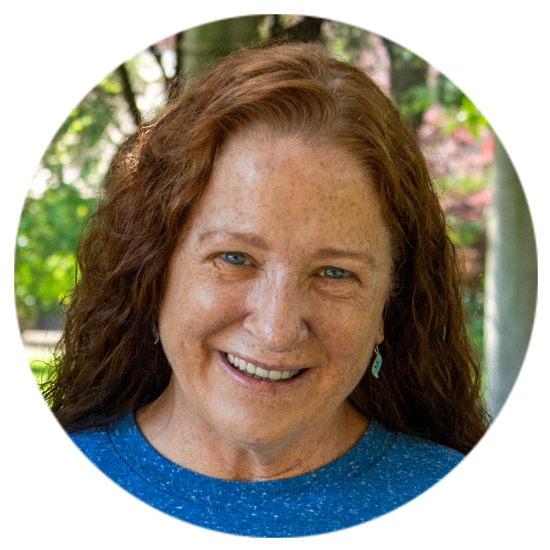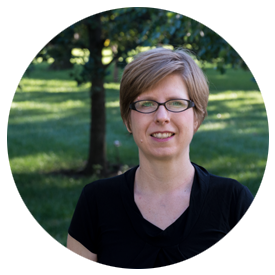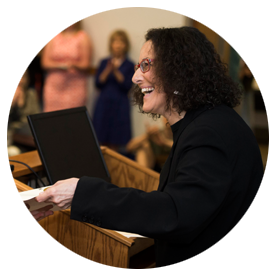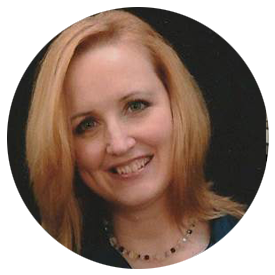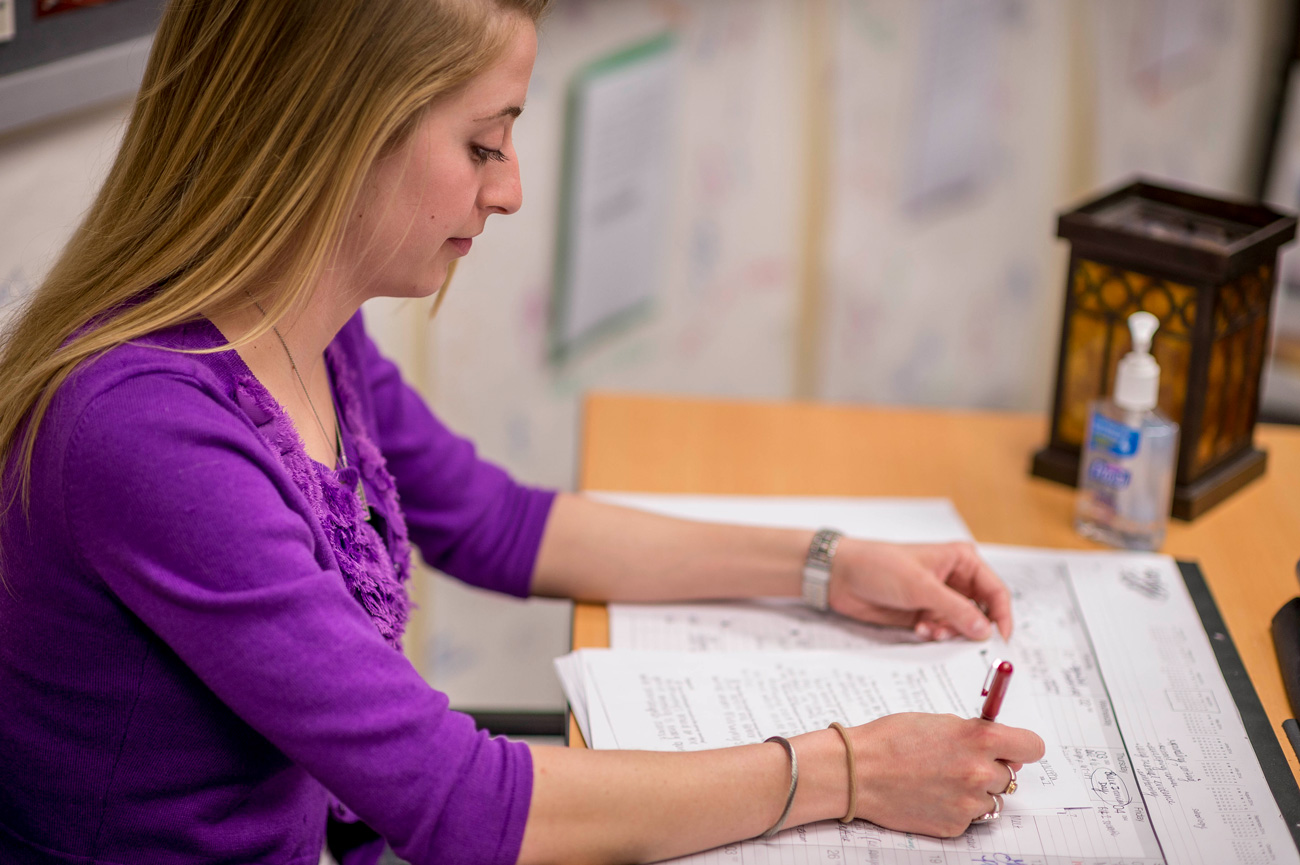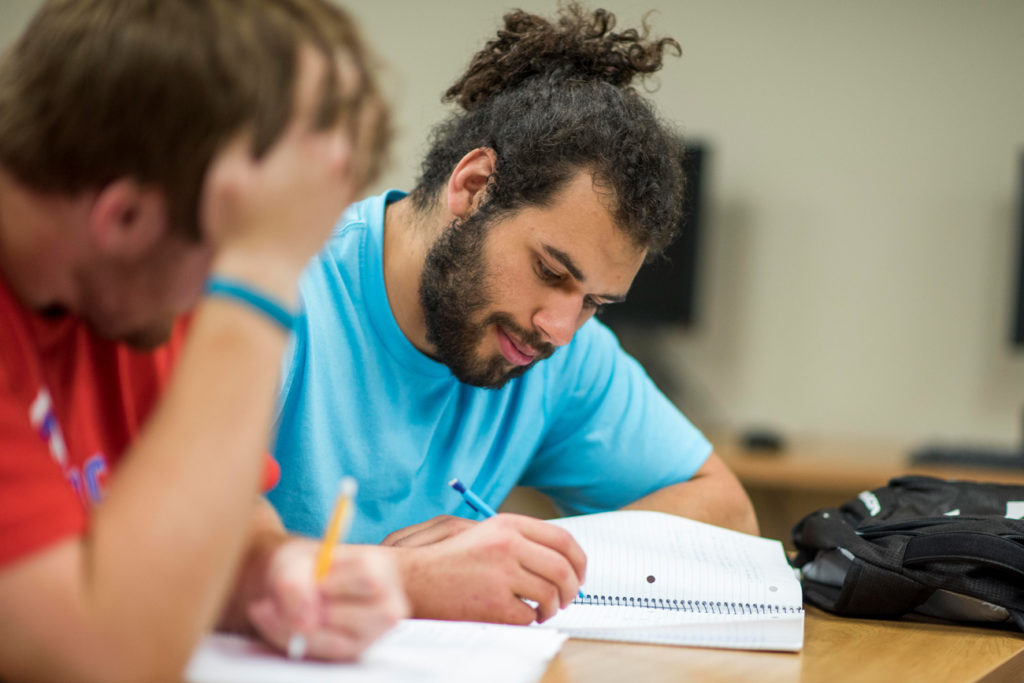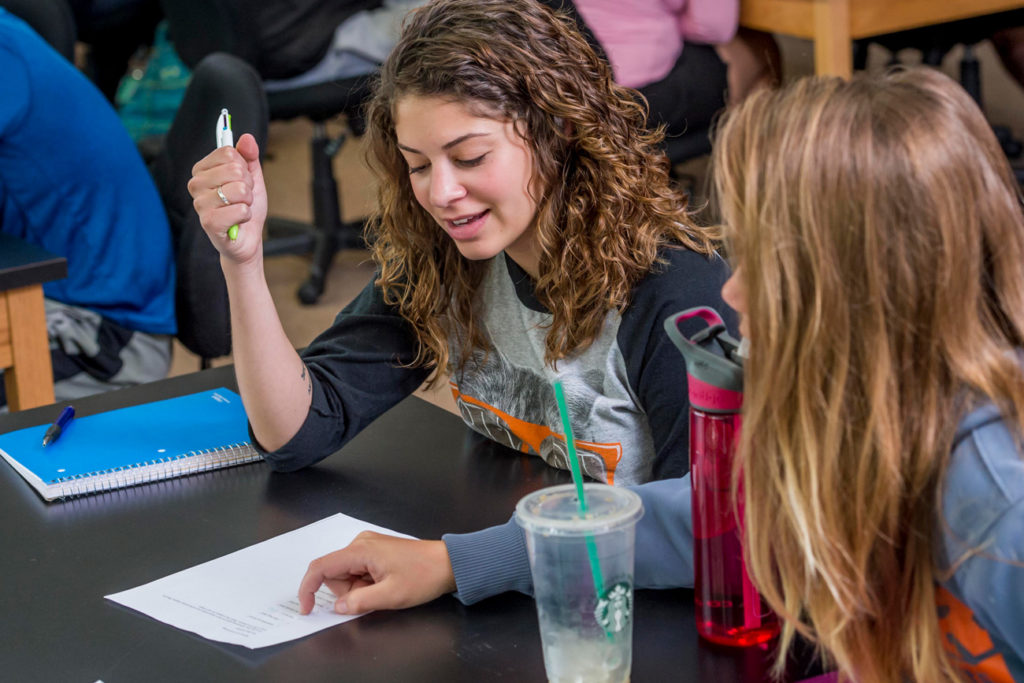EN 100 – Basic Composition 3 hrs.
This course helps students gain confidence and proficiency in college-level writing. Students will gain increased awareness and control of their own writing process, and they will learn common academic writing strategies. The course also focuses on improving critical thinking skills, especially those of analysis and argument. Upon completion of the course, students will have the tools to make thoughtful and appropriate writing decisions based on the work’s purpose and intended audience.
EN 120 – Introduction to Literature 3 hrs.
This course introduces students to the major literary genres of narrative fiction, poetry, and drama and examines the interrelationships between language and aesthetic experience. Literary works will serve as the basis for study of the ways in which writers consciously employ language to create aesthetic expressions which reflect experiences of the senses, emotions, intellect, and imagination, as well as ways in which human experience itself is shaped by language.
EN 122 – Introduction to Fiction 3 hrs.
While providing students a general introduction to literature as an art form and reflection of the human condition, this course explores a particular genre or kind of literature: the narrative. In this introductory course, students will consider the relationships among theme, technique, and aesthetic experience while reading significant representative works of the genre, primarily of the English language.
EN 124 – Introduction to Poetry 3 hrs.
This course introduces students to the literary genre of poetry and examines the interrelationships between language and aesthetic experience as they find expression in poetry. Poems studied will be selected to illustrate such facets of poetic expression as rhythm and sound, diction, voice, tone, imagery, figurative language, symbol, and paradox as well as traditional poetic forms, subjects, themes, and myths. Particular attention will be devoted to the way in which poets consciously employ language to create unified aesthetic works combining experiences of sound, rhythm, emotion, intellect, and imagination, even as human experience itself is shaped by these dimensions of language.
EN 126 – Introduction to Dramatic Literature 3 hrs.
While providing students a general introduction to literature as an art form and reflection of the human experience, this course explores a particular genre or type of literature: the drama. In this introductory course, students will consider the relationships among theme, technique, and aesthetic experience while reading significant representative plays, primarily of the English language.
EN 130 – Introduction to Creative Writing 3 hrs.
This course allows students to specialize in the reading and writing of poetry and prose, emphasizing students’ own strengths. The importance of both self-expression and form will be explored. Students will discuss examples of modern and contemporary poetry and prose to appreciate the current state of the writer’s art and will complete original works for class presentation, critique, and grading. No prior experience in creative writing is necessary.
EN 152 – Introduction to Writing and Research 3 hrs.
This writing-intensive course helps students develop the analytical, research, and writing skills necessary for college success in a wide range of disciplines. While a major focus of the course will be writing about literature, it will also serve as an introduction to writing across the disciplines. The course emphasizes the process of producing thoughtful and clear academic writing, which includes textual analysis, critical thinking, audience awareness, argument development, and engagement with research materials.
EN 210 – American Literature, Colonial Period to 1890 3 hrs. Fall term, yearly
Students will study representative works of prose and poetry that reflect the development of American literature and thought. The course examines recurrent themes, such as the American Dream, the promise of the frontier, and the value and rights of the individual. The course is designed to acquaint students with some of the major authors of American literature, such as Wheatley, Emerson, Thoreau, Poe, Hawthorne, Douglass, Jacobs, Whitman, Dickinson, and Melville, and to examine the relationship between the works and their historical and cultural contexts. Note: EN 210 is not a prerequisite for EN 212.
EN 212 – American Literature since 1890 3 hrs. Spring term, yearly
Students will study representative works of prose, poetry, and drama presented in their historical context. The course explores a number of recurrent themes, such as the shift from rural to urban culture, the American Dream, and the individual’s search for identity and meaning in a time of rapid technological and cultural change. The course is designed to acquaint students with works by some of the major authors of American literature, such as Zitkala-Ša, Dreiser, Washington, Du Bois, Faulkner, Hurston, Williams, Baldwin, O’Connor, and Morrison. Note: EN 210 is not a prerequisite for EN 212.
EN 215 – Studies in a Literary Genre 3 hrs. R
EN 218 – Studies in a Literary Theme or Movement 3 hrs. R
EN 223 – World Literature 3 hrs.
This course examines selected works of world literature in translation with an emphasis on the works in their social, historical, and cultural contexts. In addition to examining the texts’ literary qualities, we will work to make connections—between texts, between regions of the world, and between the works and students’ own lives—in order to build knowledge and understanding. The course will include a variety of literary genres, and it will include works from regions such as Europe, Africa, the Middle East, Asia, Latin America, and the Caribbean. A significant concentration of works will be from the 20th and 21st centuries.
EN 224 – Studies in World Literature 3 hrs.
This course explores a closely-focused topic in world literature. Selections and emphasis will vary from semester to semester. The course may be organized around a region or culture’s literature (such as South Asian, Caribbean, or African literature) or it may offer an in-depth comparative study of a theme or topic that crosses geographical boundaries (such as colonial or postcolonial literature, the effects of globalization, or the influence of Arabian Nights on literature around the world). R
EN 226 – Multi-Ethnic American Literature 3 hrs. Spring term, even years
This course explores significant works of literature by writers from diverse ethnic and cultural backgrounds. Works are drawn primarily from the 20th-century American literary scene but may also include works that address issues of race, gender, and culture in other countries or time periods. By paying particular attention to such elements as authorial style, symbolism, theme, and historical and cultural contexts, we will work toward a greater understanding of each text as a work of art and explore the significance of multi-ethnic writers within the larger literary canon. Ultimately, students will come to understand specific literary trends and appreciate the importance of language and literary expression in the formation of identity.
EN 228 – Studies in American Ethnic Literature 3 hrs. Spring term, odd years
This course explores a closely focused topic in American ethnic literature. Course content and emphasis will vary from semester to semester. The course may be organized around significant works of literature by writers from a single American ethnic background, such as African American, Native American, Chicana/o, or Asian American. Or, the course may be organized around a specific literary genre or theme across multiple American ethnic literatures. R
EN 232 – Poetry Writing I 3 hrs.
This writing course introduces students to the poem, with emphasis on the art and craft of the poet. Through study of professional “models” and intensive involvement in the writing process itself, students will learn to create and then revise their own works, mastering an understanding of all basic technical elements required.
EN 234 – Fiction Writing I 3 hrs.
This course will provide an in-depth exploration, both theoretical and practical, of the art of writing fiction. Through a study of professional “models” and intensive involvement in the writing process itself, students will learn to create and then revise their own works, mastering an understanding of all basic technical elements required.
EN 262 – Children’s Literature 3 hrs. Fall term, yearly
This course emphasizes the reading, evaluation, and presentation of literature appropriate for elementary and middle-level learners. The class will explore various literary genres through the reading of authentic children’s books, poetry collections, picture books, and novels. Specific topics of study include: the history of children’s literature; diversity of characters, settings, plots, themes, and cultures; and prominent authors and illustrators. A variety of literary presentation and teaching methods will be explored. This course does not count toward the major in English. Prerequisites: ED 100 or 243. (Cross-listed as ED 262.)
EN 313 – Mythology 3 hrs.
This course provides an introduction to the study of mythology and a survey of the myths of the ancient Greeks and Romans. Students explore the various linguistic, anthropological, and psychological theories of the origins and purposes of myths as a basis for the study of the myths themselves. Attention is also given to comparative mythology, particularly Egyptian and Norse mythologies and the mythologies of Asian and Native American cultures. Prerequisite: One course in literature.
EN 330 – British Literature to 1780 3 hrs. Fall term, yearly
In this course students will study texts by authors representative of British literature and its major traditions from the Anglo-Saxon period to the 18th century. As students read these texts against the historical, social, and intellectual background of the times, they will be introduced to works by such figures as the Beowulf poet, Chaucer, Shakespeare, Milton, Pope, and Johnson, among others. Through study of the texts students will gain an appreciation of the literature itself, the traditions from which it springs, and its relationship to both the world of its creator and our world today. Prerequisite: One course in literature.
EN 331 – British Literature since 1780 3 hrs. Spring term, yearly
In this course students will study texts by authors representative of British literature and its major traditions from the Pre-Romantics to the present day. As students read these texts against the historical, social, and intellectual background of the times, they will be introduced to works by such figures as Wordsworth, Keats, Browning, Tennyson, Dickens, George Eliot, Hopkins, Yeats, Joyce, T. S. Eliot, Lawrence, Woolf, Larkin, Achebe, and Heaney, among others. Through study of the texts students will gain an appreciation of the literature itself, the traditions from which it springs, and its relationship to both the world of its creator and our world today. Prerequisite: One course in literature.
EN 341 – Editing 3 hrs.
This course provides instruction in the editing and rewrite techniques for print and online news, including spelling, grammar, headline writing, and style according to the Associated Press Style and Libel Manual. Prerequisite: MM 250 or two writing courses in English (Cross-listed as MM 341.)
EN 353 – Creative Nonfiction: The Personal Essay 3 hrs. Every other year
This writing course enables students to pursue advanced work in prose writing while exploring the particularly broad range of both subject and style available to those who write the personal essay. Students will experience the challenge of the open structure characteristic of the personal essay as well as the challenge of weaving personal observation into a meaningful whole that transcends the individual, making it suitable for a general audience. Prerequisite: Sophomore status.
EN 362 – Exploring Young Adult Literature 3 hrs.
This course emphasizes the investigation of YA literature through reading, discussion, and evaluation. The class will explore various literary sub-genres of YA literature through a thematic approach. Specific topics of study include: the history of young adult literature, the place of young adult literature in the secondary English content classroom, literary elements of selections (characters, settings, plots, themes, and cultures) notable YA authors, and controversial issues presented in YA literature. The explorations of the young adult literary genre will take two tracks within the same course. The English major will develop a literary framework for the study of YA literature, which will include works across various sub-genres, identifying stylistic devices used within the works, and utilizing approaches to formal literary criticism of selections read. The English Education major consideration of the genre will include a degree of literary criticism, with an emphasis on a variety of pedagogical presentations and teaching methods appropriate for the middle and secondary English language arts classroom. This course does not count towards the Literature or Creative Writing emphases of the English major. (Cross-listed as ED 362).
EN 363 – The English Language 3 hrs. Offered every other year
In this course, students study the growth of the English language from the beginnings to the present day, with special emphasis on the attempts, both traditional and modern, to develop a grammatical structure to describe it. Problems related to the study of semantics and the development of modern American English are also examined.
EN 365 – Advanced Composition 3 hrs. Offered every other year
This course is designed to teach students to think and write clearly and to read perceptively and with insight. The course is centered on an examination of rhetorical principles as exemplified in a collection of essays. Students are encouraged to develop writing styles of their own that are fluid, clear, informative, and forceful. Prerequisite: Sophomore status.
EN 370 – Studies in Major Authors 3 hrs.
This course offers intensive study of one to three major authors, with the specific topics varying each semester. Readings will focus on the author’s primary texts—including both classics and lesser-known works—as well as biographical and critical materials. R
EN 375 – Advanced Poetry Workshop 3 hrs.
This course immerses students who have already completed introductory work in poetry writing in more intensive experiences related to both the writing and critiquing of poems. Students will build upon current skills and develop their own “voices” while learning directly from the skills and voices of others. The course emphasizes ongoing critiques (by both the instructor and students) of works-in-progress while introducing students to the language and methodology characteristic of writing program workshops. Thus students will be expected to study and experiment with a range of styles and techniques and to continually produce original works for both written and oral critiques by both peer writers and the instructor. In addition, students will apply critical abilities gained through previous courses in literature and criticism in a new way. Prerequisite: EN232.
EN 409 Editorship of Watershed: the Baker University Literary Arts Magazine 1 hr.
Watershed is a student-founded, student-designed, student-edited, and student-published literary arts magazine published each spring in celebration of that year’s best undergraduate creative writing. In this course, the Watershed editor is responsible for all aspects of production, including the solicitation of writing and art submissions, the selection (via student committee) of pieces, the communication with all authors (of both accepted work and rejected work), the publication layout and design, and the production and distribution of copies. Prerequisites: Two creative writing courses, permission of faculty advisor/sponsor for Watershed, and approval of Department Chair. R
English Seminars at the 400 Level Fall term, yearly
Seminars allow students to develop their skills in literary analysis and knowledge of literary history in more depth by concentrating on intensive study of a small group of authors, a specialized study in genre, or study of a group of works from multiple genres related to an important theme or movement. All seminars share the following traits: 1) a substantive research paper involving some level of collaboration regarding the writing process; 2) substantial student participation in conducting the course through formal oral presentations or other means; 3) class interaction based more on active dialogue than on lecture. Courses of the same number but different topics may be repeated for credit. Note: Seminars are only offered once per year. Students needing two seminars therefore need to take one seminar in the fall of the junior year and one seminar in the fall of their senior year. Prerequisite: Six credit hours of college-level literature courses. R
EN 410 – Seminar in Major Authors 3 hrs.
EN 415 – Seminar in a Literary Genre 3 hrs.
EN 418 – Seminar in a Literary Theme or Movement 3 hrs.
EN 450 – Writer’s Workshop: Multi-Genre 3 hrs.
This writing course immerses students who have already completed introductory work in more than one genre of creative writing in intensive experiences related to the reading, writing, and critiquing of fiction, poetry, and creative nonfiction. Students will build upon their beginning skills and develop their own writing “voices” and styles while learning directly from the skills and voices of others. The course emphasizes ongoing group critiques of works-in-progress while introducing students to the language and methodology characteristic of upper-level writing program workshops. Prerequisites: Any two creative writing courses or permission of instructor.
EN 460 – Critical Approaches to Literature 3 hrs. Fall term, yearly
This course introduces students to literary theory: new ways of approaching texts that are grounded in the recent history and practice of literary studies. Students begin to develop the tools and formal academic language that will help them enter into and participate in the discipline. The major critical lenses discussed may include New Criticism, structuralism, deconstruction, Marxism, feminism, new historicism/cultural studies, psychoanalytic criticism, reader-response theory, postcolonial criticism, and queer theory. In addition to assignments focused on understanding and applying various approaches to specific texts, students will produce a substantive final project. Prerequisite: EN 152 and one other course in literature.
